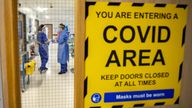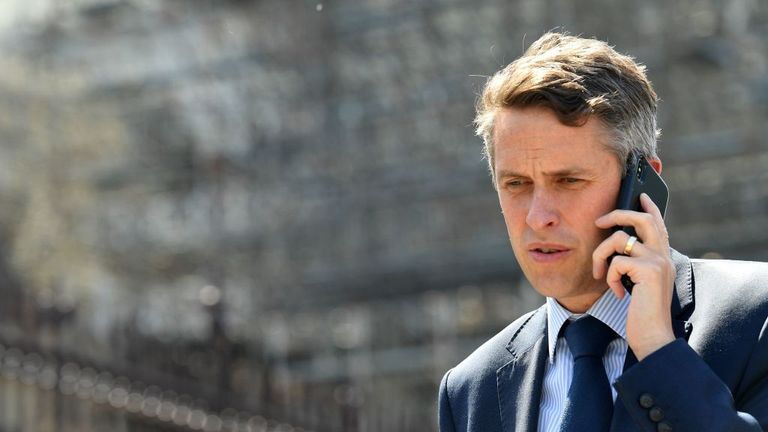COVID-19: Schools might not all reopen at the same time across England, suggests Dr Jenny Harries
England's deputy chief medical officer tells MPs there's "likely" to be regional differences in COVID measures once lockdown ends.
Tuesday 19 January 2021 13:49, UK
Schools might not all reopen at the same time across England as lockdown restrictions are eased, MPs have been told.
Dr Jenny Harries, one of England's deputy chief medical officers, said there was "likely" to be regional differences in COVID measures once the national shutdown ends.
Live COVID news from UK and around the world
Appearing before the House of Commons' education committee on Tuesday, Dr Harries was asked if there could be a regional or phased approach to reopening schools.
Raising the prospect of schools reopening earlier in some parts of the country than others, she replied: "On the broad epidemiology, it is highly likely that when we come out of this national lockdown, we will not have consistent patterns of infection in our communities across the country.
"And therefore, as we had prior to the national lockdown, it may well be possible that we need to have some differential application.
"But clearly schools will be right at the top of the priority for trying to ensure that balance of education and wellbeing is right at the forefront of consideration.
"I think it's likely we will have some sort of regional separation of interventions."
Dr Harries added there were "some glimmers of hope" about current infection rates in London, which had been among the earliest areas to be affected by the COVID variant in the UK.
Subscribe to the Daily podcast on Apple Podcasts, Google Podcasts, Spotify, Spreaker
When he announced England's third national lockdown at the beginning of this month, Prime Minister Boris Johnson set out his hope that schools might begin to reopen after the February half-term.
However, Dr Harries said there was a "caveat" around plans to get all pupils back into classrooms next month.
"We have very recently seen very high rates of infection in our community and, of course, we are dealing with trying to understand the implication of new variants of coronavirus," she said.
"So I think with those caveats, it's a time frame which allows us to continue to monitor the infection rates and to see the direction of travel.
"But it will continue to need to be observed and reviewed right up until that time period."
Dr Harries also told MPs she "can't guarantee" that between now and February there "wouldn't be another variant or we may find some other epidemiological change" in the spread of coronavirus infections.
However she said that schools were "not a significant driver as yet" in COVID cases.
"Schoolchildren definitely can transmit infection in schools - they can transmit it in any environment - but it is not a significant driver as yet, as far as we can see, of large-scale community infections," Dr Harries told MPs.
Asked about Dr Harries' remarks to the committee, Downing Street said Boris Johnson wanted schools to open "as soon as possible".
But the prime minister's official spokesman said whether this would be after February half-term would depend on "a number of things", including the progress of the vaccination programme and the possibility of a new COVID variant emerging that resists the jab.
Asked whether regional disparities in vaccination rates could slow the reopening of schools in some areas, the spokesman said: "We will continue to look at the latest scientific evidence and data."
Meanwhile, latest figures from the Department for Education show that more than one fifth of primary school pupils in England were on-site last week.
Overall, 14% of state school pupils were in class on 13 January, which is higher than when schools were partially closed between March and May last year during England's first lockdown.
The figures show 21% of primary school pupils were on-site last week, while 5% of secondary school students were in class.
During the first lockdown, on-site attendance was approximately 4% in primary schools and 1% in secondary schools.
Labour have called for Education Secretary Gavin Williamson to resign as they accused him of failing pupils throughout the COVID crisis over his handling of the closing of schools, cancellation of exams and provision of free school meals.
Shadow education secretary Kate Green said: "Gavin Williamson's record throughout this pandemic has been shambolic.
"He has bounced from one crisis to another without learning from his mistakes or listening to the parents, pupils and hard-working education staff who have been left to deal with the fallout."





